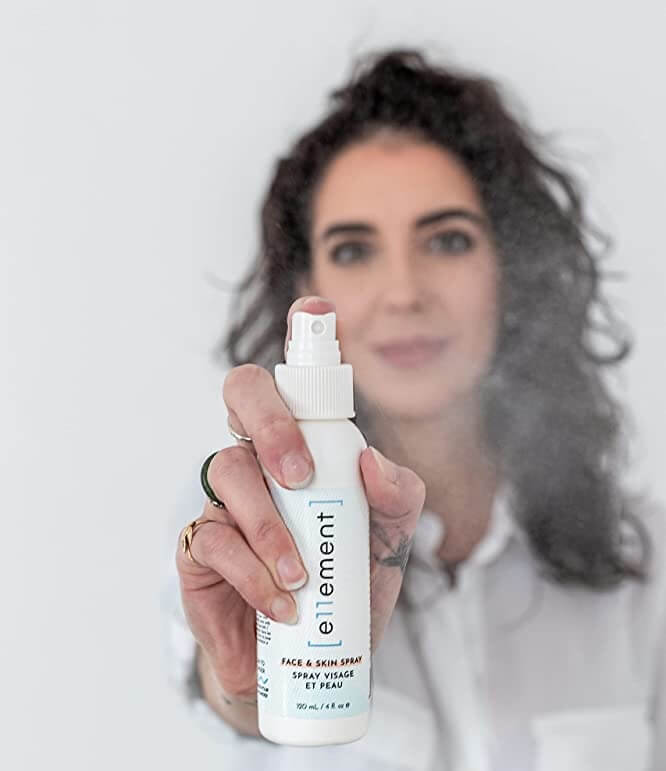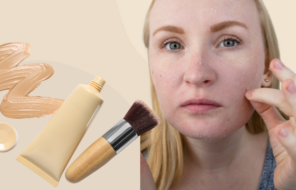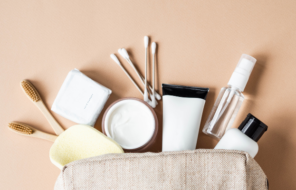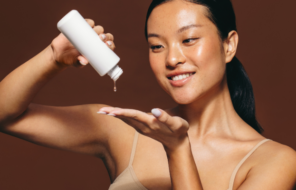Hypochlorous acid (HOCl) is a weak acid naturally produced by the body’s white blood cells to defend against bacteria, infections, and any foreign bodies that may be a threat to the body’s health. It’s a chlorine oxoacid and the active form of chlorine in water.
Stabilized HOCl is considered an approved disinfectant against COVID-19 by the Environmental Protection Agency and is used in sprays to sanitize surfaces. Yes, this acid is so strong that it can kill the coronavirus on surfaces — so imagine what it can do for the bacteria on your face.
We spoke with esthetician Mallory Knight, owner of Knight & Day Skin Studio in Fullerton, California, and Steven Line, MD, a cosmetic medical physician and representative of the American Cosmetic Association, to help us understand more about this star acid.
Read on to learn more about the skincare benefits of this naturally occurring acid from skin experts.
What are the skincare benefits of hypochlorous acid?
HOCl is an effective antimicrobial agent that can kill bacteria, viruses, and fungi that can cause skin infections. “HOCl also has anti-inflammatory properties that can help reduce redness, swelling, and irritation of the skin,” Line told Glowsly. “Additionally, HOCl can help promote wound healing by stimulating the growth of new skin cells.”
It may also be beneficial for those that suffer from acne. “HOCI is antimicrobial, making it effective against P. Acnes/C.Acnes bacteria that clog pores and cause acne. It also oxygenates surrounding cells, which speeds up wound healing to repair damage. HOCl also reduces inflammation and can have a beneficial impact on skin conditions such as eczema and psoriasis,” Knight said.
HOCl can be helpful to skin health in a number of ways. Here are some science-backed benefits of using hypochlorous acid topically:
- Speeds up wound healing
- Clears acne
- Prevent scars from wounds and acne
- Improves atopic dermatitis and seborrheic dermatitis
- Helps with inflammation-related conditions like psoriasis and eczema
“It would be excellent for use after waxing, as the skin can be irritated post-treatment, and the spray could calm and soothe the skin while also killing bacteria that could cause breakouts in the area,” Knight said.
Who should use hypochlorous acid?
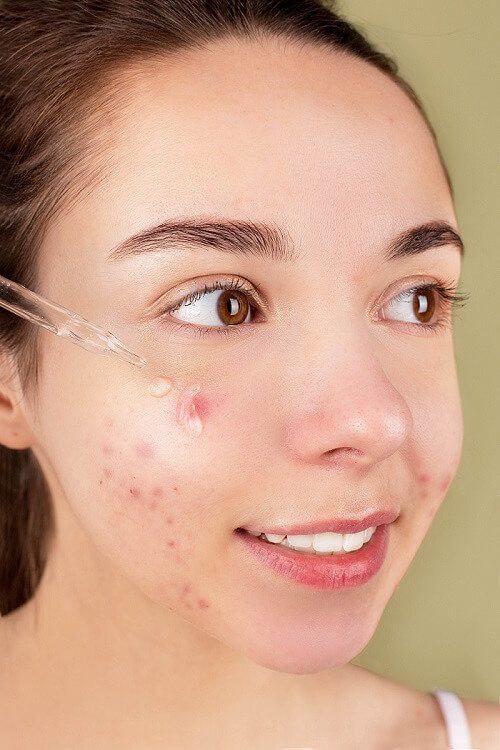
HOCl can be beneficial for all skin types, including sensitive and acne-prone skin. “However, it is particularly helpful for people with skin infections, wounds, or inflammation,” Line said.
Before using HOCl, consult with a healthcare professional or dermatologist. “While HOCl is generally safe for topical use, it can interact with other skincare products or medications,” Line said. “Additionally, HOCl may cause skin irritation or allergic reactions in some people.”
How can you use hypochlorous acid?
“It is 100 times stronger than bleach, so do not use HOCl if the product isn’t specifically formulated to be used on the face or skin,” Knight said. While HOCl skincare products are available as creams and lotions, Knight recommended sprays, as they allow for better penetration into the skin and are great for touch-ups to prevent breakouts if you’re wearing a mask.
Apply a product with HOCl before applying makeup as part of your skincare routine. Knight also advised using the acid to sterilize your brushes. “You can also spray it on makeup brushes to help disinfect them, but it doesn’t replace cleaning [your] beauty tools.”
Look for products that have been clinically tested and are safe for topical use. “Check the concentration of HOCl in the product and ensure that it is appropriate for your skin type and concerns,” Line recommended. Knight said that HOCI becomes virucidal above 0.005%, and 0.012 to 0.018% are common percentages of HOCI in skincare products.
Look for products that have HOCI listed as one of the first few ingredients; this will ensure you’re getting a high enough percentage of it to be beneficial for your skin. “Also look for soothing ingredients higher up in the list as well — like aloe, chamomile, lavender, green tea, licorice root, allantoin, colloidal oat — as they will work well with HOCI in treating your skin,” Knight said.
And as for the future of this acid? We hope to see it in more products soon. “Since COVID-19, I believe it brought more awareness to the amazing properties of HOCI and we will see more product innovations incorporating it into their formulas,” said Knight.
Start with a hypochlorous acid spray
This acid can be a great skincare staple to keep in your medicine cabinet to treat acne, inflammation, and scarring. Experiment with a HOCl spray under makeup or apply to scratches and scrapes on your skin to speed up healing. If you want to learn more about the best ways to use hypochlorous acid for skincare benefits, talk to your dermatologist or esthetician.

